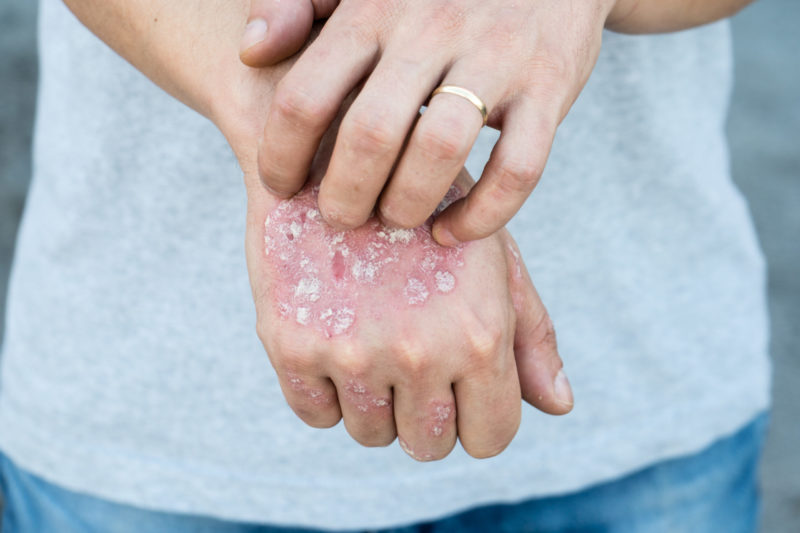Phototherapy (aka light therapy) involves exposing skin impacted by psoriasis to specific wavelengths of UVB light in a medical setting. It’s often very effective at reducing the pain and itchiness cause by psoriasis, and doesn’t generally cause too many side effects, especially when compared with systemic medications that are taken orally or via injection and must travel through your bloodstream to do their work. But there’s a catch: Phototherapy won’t do anything to reduce your chances of developing psoriatic arthritis.
Up to 30 percent of psoriasis patients will eventually develop psoriatic arthritis (PsA), an inflammatory joint disease. Scientists are trying to find out what may make psoriasis patients more likely to develop PsA. So far, family history of PsA, smoking, and obesity are among the likely risk factors, though a person doesn’t necessarily have to have any of these traits to get PsA.
But there is some good news: new research suggests how you treat your psoriasis might have a major impact on whether you develop psoriatic arthritis.
A new study, published in the journal Annals of the Rheumatic Diseases, compared psoriasis patients who used phototherapy to those who took biologic disease-modifying antirheumatic drugs to see how treatment choices might influence the later development of PsA. According to the findings, the people who used biologics were significantly less likely to end up with PsA.
Researchers analyzed the data of 464 people who had moderate to severe plaque psoriasis, but not PsA. The patients were then divided into two groups: those who used a biologic drug continuously for at least five years and those who had at least three narrow-band ultraviolet light B (nb-UVB) treatments. (It’s important to note they were not randomly assigned to these groups. The patients had already made these treatment choices with their providers by January 2012.)
The researchers found that patients who had nb-UVB treatment were far more likely to develop psoriatic arthritis. Specifically, patients taking biologics had PsA at a rate of 1.20 cases per 100 patients per year, while patients using phototherapy had PsA at a rate of 2.17 cases per 100 patients per year.
These results aren’t totally surprising considering that light therapy “dampers only skin inflammation, and it is regarded as a specific-skin targeted therapy,” the authors note. Biologics, on the other hand, might have the potential to change the underlying disease mechanism that connects PsA and psoriasis by targeting inflammatory proteins (such as tumor necrosis factor or interleukin 23/17), though more research is needed to sort this out.
Because psoriasis patients in this study weren’t randomly assigned to receive one treatment versus the other, it’s unclear whether those who chose biologics had specific reasons (like more severe disease or a family history of PsA) that prompted them to choose a systemic treatment.
“Future large prospective and intervention studies are needed to further validate these findings in independent samples,” the researchers wrote.
Track Your Medications with ArthritisPower
Join CreakyJoints’ patient-centered research registry and log your medications to track side effects and impact on disease activity. Join now.
Gisondi P, et al. Biological disease-modifying antirheumatic drugs may mitigate the risk of psoriatic arthritis in patients with chronic plaque psoriasis. Annals of the Rheumatic Diseases. June 18, 2021. doi: https://doi.org/10.1136/annrheumdis-2021-219961.






